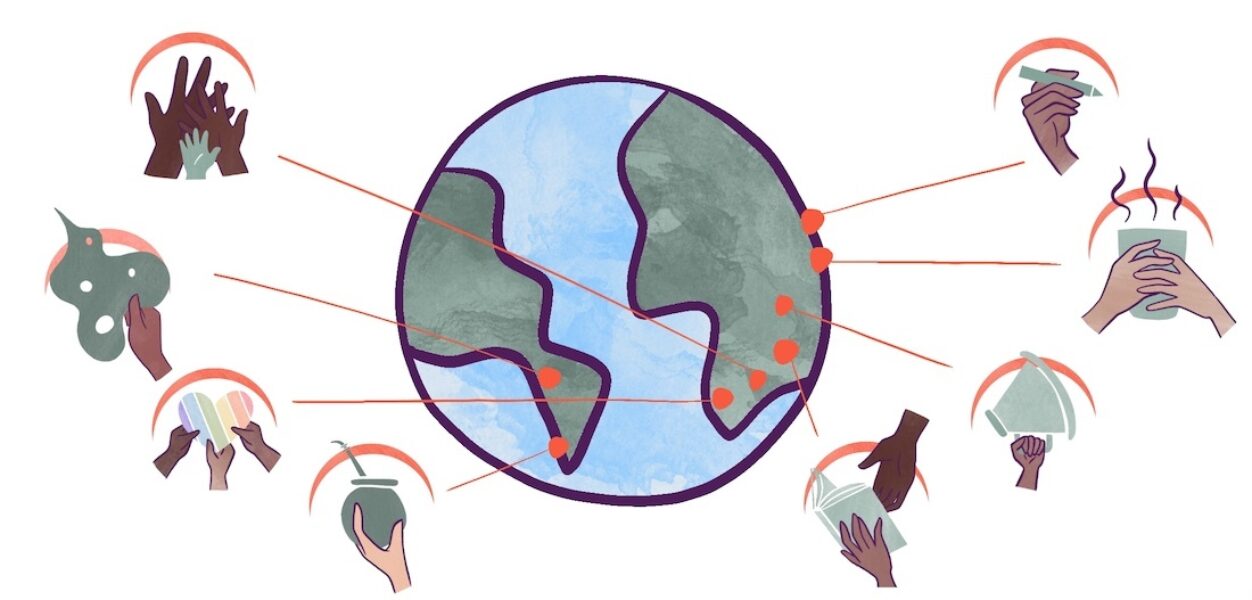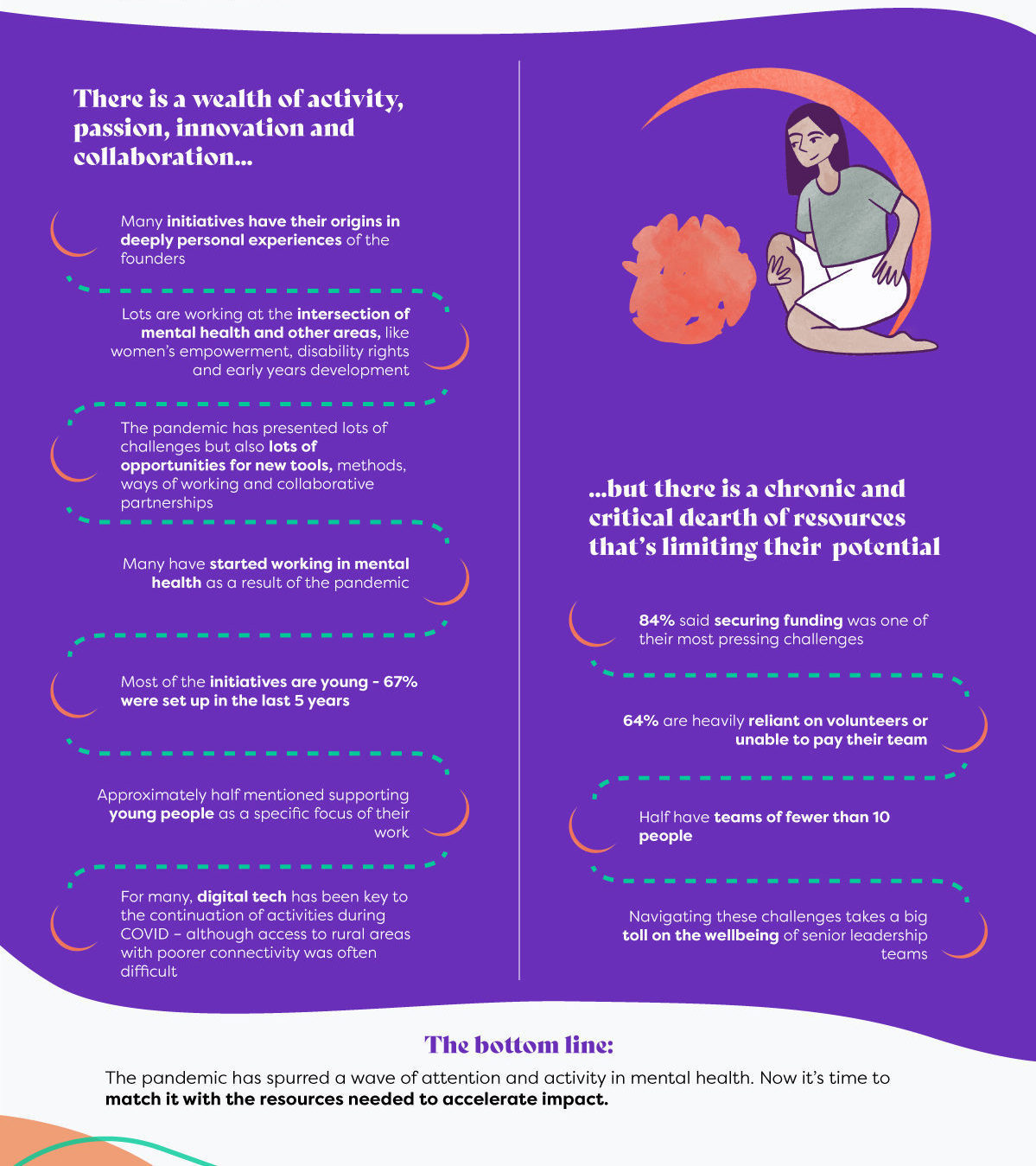Ember Callout Snapshot 2021: Ground realities of grassroots mental health projects
Oct 10, 2021

The COVID-19 pandemic has had a devastating impact on people’s mental health around the world. It magnified the urgent need to expand access to different kinds of mental health support. While we witnessed people experiencing poor mental health, we also saw hope in existing and emerging solutions dedicated to supporting people.
During the World Health Assembly in May 2021, governments from around the world recognised the need to scale up quality mental health services at all levels (WHO, 2021). While concrete measures are being taken at global and national levels, at the grassroots, local initiatives have been relentlessly working to respond to the urgent needs of people at the frontlines.
In our recent call-out, we witnessed the wealth of activity, passion, and innovation held by community based mental health initiatives. We received 166 applications from across the world. Here's a snapshot of what we heard.

We heard profound personal experiences of founders, either with their own mental health or as caregivers, that are leading them to take up this cause to ensure that no one else suffers in silence from mental health issues. It is significant to note here that about 67% of the projects that applied to the call-out were set up in the last five years with many of them focusing on young people as their specific target audience. There were many organisations whose focus in mental health had come about as a result of the pandemic. Use of digital technology, though full of challenges, has also assisted in continuing delivery of services for these projects during this time.
Clearly, community-based mental health projects have emerged as powerful agents of change in transforming the global mental health landscape. However, there is a chronic and critical dearth of resources that’s limiting the extent to which these organisations can support their communities.
A lack of financial resources emerged front and centre as a challenge for organisations. The majority of those that applied to the call-out - 84% - said securing funding was one of their greatest difficulties. This lack of funding often makes it hard for organisations to engage in the medium- to long-term strategic planning that would facilitate growth and sustainability. Of those organisations that described having some degree of core funding secured for their project, for 83% this was due to run out within 2 years; for 33%, within the next 12 months. With such a resource-poor landscape to work in, many organisations can only form small teams, often relying on the support of volunteers. Importantly, navigating these challenges while meeting the growing mental health needs of their communities, can take a big toll on the wellbeing of those in senior leadership.
The last couple of years, marked by the COVID-19 pandemic, have spurred a wave of attention towards the need to prioritise mental health. However, increased awareness is not enough - now it’s time to match it with the resources needed to accelerate impact.